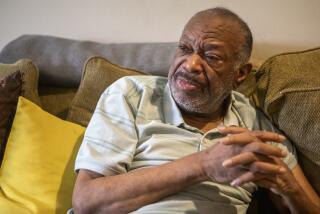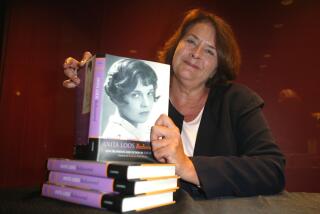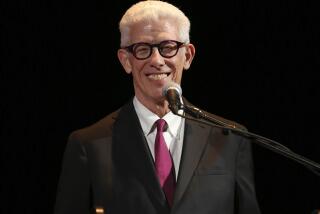Leo Rangell dies at 97; leading psychoanalyst
Dr. Leo Rangell, a leading psychoanalyst who argued forcefully that theoretical fads and factions threatened to erode consumer confidence in the field founded by Sigmund Freud more than 100 years ago, died Saturday at Ronald Reagan UCLA Medical Center. He was 97.
The cause was complications from surgery, said his daughter Judith Alley.
A clinical professor of psychiatry at UCLA and UC San Francisco, Rangell wrote more than 450 published papers as well as several books, including “The Mind of Watergate” (1980), “My Life in Theory” (2004) and “The Road to Unity in Psychoanalytic Theory” (2006).
He held the highest positions in his discipline, serving twice as president of the American Psychoanalytic Assn. and the International Psychoanalytical Assn.
Rangell also was named honorary president of the international group, a distinction that previously was held by Freud’s daughter, Anna. He will be posthumously awarded the title of honorary president of the American group at its 100th annual meeting next week in San Francisco.
A practicing psychoanalyst since the 1940s, Rangell was seeing patients until shortly before his death.
“He was quite unique,” said American Psychoanalytic Assn. President Warren R. Procci, a Pasadena psychiatrist who knew Rangell for 30 years. “He was not someone who faded as he got older. He was extremely influential over the entire course of his career.”
Rangell’s chief contribution was championing a comprehensive theory of psychoanalysis to counter the waves of new schools of thought that emphasized one approach over all others and divided the profession into warring camps of Adlerians, Jungians, Kleinians, Reichians and others.
“Is it acceptable,” Rangell wrote in “The Road to Unity in Psychoanalytic Theory,” “that a patient should turn out to have an Oedipal conflict or a problem with self-cohesion depending on which analyst he is with?”
The oldest of four children of Russian and Polish immigrants, Rangell was born Oct. 1, 1913, in New York City. He earned a scholarship to Columbia University and studied medicine at the University of Chicago, graduating in 1937.
He practiced psychiatry and neurology in New York until World War II began, then spent the war years as a psychiatrist in the Army Air Forces.
After the war, he moved to Santa Monica and studied at the Los Angeles Psychoanalytic Institute, producing a thesis on a man with a doll phobia that was published in the International Journal of Psychoanalysis.
Rangell opened a practice in Beverly Hills, but later moved his office into his home in Brentwood.
He wrote important papers on a number of topics, including anxiety, unconscious decision-making and the role of friendships in mental health.
His book “The Mind of Watergate” explored the public pathology that he said gives rise to corruption; he called it the Nixon Syndrome. “The fact is that Nixon was sick in the realm of integrity,” Rangell wrote. “This is an area in which the mental sciences have lagged.”
A computer-savvy nonagenarian, he blogged for the Huffington Post on topics that included the shooting of Arizona Rep. Gabrielle Giffords as well as an unusual malady he developed about 15 years ago. While recuperating from heart bypass surgery in 1995, he began to hear music — Hebrew chants at first, then a hit parade of sentimental standards such as “The Chattanooga Choo-Choo” and “When Johnny Comes Marching Home.” It caused him some anxiety when he realized no one else heard the music that he heard nearly all the time. The “musical hallucinosis,” as he called the involuntary tunes, became a fixture of his life, although he learned to control and, eventually, accept it.
“I have become familiar with a new dimension of me,” he wrote in a 2006 blog post. “The songs come on their own, and I listen. I am listening to me.”
Rangell’s wife of 58 years, Anita Buchwald Rangell, died in 1997; a son, Richard, also died. He is survived by two daughters, Judith Alley of Berkeley and Susan Harris of Boulder, Colo.; a son, Paul of Santa Cruz; a sister, Sydelle Levitan of New York City; seven grandchildren; and six great-grandchildren.
More to Read
Start your day right
Sign up for Essential California for the L.A. Times biggest news, features and recommendations in your inbox six days a week.
You may occasionally receive promotional content from the Los Angeles Times.







